At least 29 celebrities who support Palestine have publicly called for a ceasefire in Gaza. Over the past 22 months, following the Hamas-led attack on southern Israel, numerous high-profile figures have broken their silence to advocate for peace and humanitarian concerns. Indeed, this year alone, hundreds of artists, authors, and filmmakers have signed open letters demanding action from political leaders.
Furthermore, many celebrities supporting Palestine have gone beyond statements to provide tangible support. For instance, The Weeknd allocated $2 million from his XO Humanitarian Fund toward humanitarian response efforts in Gaza. Similarly, pro-Palestine celebrities Gigi and Bella Hadid donated a combined $1 million to support Palestinian relief efforts. These famous voices emphasize a common message: “Every human deserves basic rights, treatment, and security; no matter their nationality, religion, ethnicity, or where they were born”.
This article explores the growing wave of Hollywood celebrities who support Palestine, examines why their voices matter in the global conversation about peace, and highlights the personal and professional risks they face for their advocacy.
The growing wave of celebrities supporting Palestine
The outpouring of celebrity support for Palestine has increased dramatically between 2023 and 2025. While famous voices had previously spoken up for Palestinian rights, this period marked an unprecedented surge in public statements, donations, and coordinated activism from Hollywood and entertainment figures worldwide.
Why 2023–2025 saw a surge in celebrity activism
The escalation in the Israel-Palestine conflict following October 7, 2023, triggered a wave of celebrity responses that continued to grow over the subsequent months. Reports indicating that around 60,000 Palestinians lost their lives in Gaza prompted many previously silent celebrities to speak out. Moreover, coordinated initiatives like the Artists4Ceasefire letter gathered signatures from numerous high-profile musicians and actors, including Drake, Jennifer Lopez, Joaquin Phoenix, and Pedro Pascal.
Social media platforms transformed how celebrities engaged with this humanitarian crisis. Instagram, Twitter, and TikTok became crucial channels for artists to express solidarity with Palestinians. American actor John Cusack shared his personal experience participating in a pro-Palestine march in Chicago, countering mainstream narratives about the protests. Meanwhile, celebrities like Lana Del Rey and Billie Eilish made headlines specifically for their outspoken support, reflecting growing awareness among young artists about human rights issues.
Consequently, many celebrities who had maintained political neutrality throughout their careers felt compelled to speak out. As Susan Sarandon noted, despite being “shocked” when dropped by United Talent Agency for her pro-Palestine speech, she would continue lending her voice to calls for a ceasefire.
The role of global events in shifting public opinion
Specific moments in the ongoing conflict served as catalysts for changing public sentiment. The humanitarian crisis in Gaza, with reports of severe shortages of food, water, and medical supplies, became impossible for many celebrities to ignore. In May 2024, the stark contrast between the lavish Met Gala and simultaneous reports of Palestinians fleeing Rafah with less than 24 hours’ notice sparked intense backlash.
Public opinion surveys reflected this shift in consciousness. A YouGov poll found that 55 percent of Britons opposed Israel’s actions in Gaza, with 82 percent of those opponents believing Israel’s actions amount to genocide. This changing sentiment emboldened more celebrities to take public positions.
Additionally, the emergence of digital activism campaigns like “Blockout 2024” or “digitine” targeted celebrities perceived as silent or supportive of Israel’s actions in Gaza. These movements aimed to reduce celebrities’ social media earnings by encouraging users to block rather than unfollow accounts, directly impacting visibility and advertising revenue.
As global events continued to unfold, celebrities increasingly positioned themselves as moral voices when political leadership seemed absent. As one professor noted, “artists and cultural figures are stepping into a political vacuum, a role shaped by history”. The result was a growing wave of celebrities willing to risk professional consequences to advocate for Palestinian rights.
8 celebrities who support Palestine and why it matters
Famous voices are making profound impacts through diverse forms of advocacy. From social media statements to multimillion-dollar donations, these eight celebrities showcase how public figures can influence the discourse around humanitarian crises.
1. Mark Ruffalo – Advocating for a ceasefire at public events
Actor Mark Ruffalo has consistently called for peace in Gaza, wearing the Artists4Ceasefire pin at the 2024 Oscars alongside other celebrities. Beyond symbolic gestures, he posted pointed messages on Instagram condemning those downplaying the crisis, stating, “Genocide is not a grey area…” He joined over 700 SAG-AFTRA members in an open letter urging protection for members expressing pro-Palestinian views and calling for a permanent ceasefire.
2. Gigi and Bella Hadid – Personal connection and donations
The Hadid sisters, whose father is Palestinian property tycoon Mohamed Anwar Hadid, donated $1 million to support Palestinian relief efforts. Their contribution was distributed equally among four humanitarian organizations: HEAL Palestine, Palestine Children’s Relief Fund, World Central Kitchen, and the United Nations Relief and Works Agency. These organizations provide crucial food, medical programs, and psychological services to affected families in Gaza.
3. Angelina Jolie – Longstanding humanitarian voice
After spending over 20 years as a UNHCR goodwill ambassador and special envoy, Jolie continues her advocacy for displaced people. She shared a Doctors Without Borders report on Gaza through Instagram, highlighting how “Palestinian lives are once again being systematically destroyed.” Jolie has called for lifting the “inhumane and deadly siege” while urging protection for humanitarian aid workers in the region.
4. Ramy Youssef – Using award shows to speak out
“Poor Things” actor Ramy Youssef utilized his platform at the 2024 Oscars, wearing the Artists4Ceasefire pin and explaining to Variety: “It’s a universal message of, ‘Let’s stop killing kids. Let’s not be part of more war.” During his “Saturday Night Live” hosting appearance, Youssef received loud applause after saying,”Please free the people of Palestine” within his monologue.
5. Billie Eilish & Finneas – Silent symbols at the Oscars
The sibling duo wore red Artists4Ceasefire pins at the 2024 Academy Awards. The organization’s press release explained that “the pin symbolizes collective support for an immediate and permanent ceasefire, the release of all hostages, and for the urgent delivery of humanitarian aid to civilians in Gaza.”
6. Susan Sarandon – Bold political statements
Following her pro-Palestinian rally speech, Sarandon faced significant professional consequences. “I was dropped by my agency, my projects were pulled,” she told the UK’s Sunday Times. Despite these setbacks, she continues advocating for Palestinian rights, highlighting how many others have lost jobs simply for “tweeting something, or liking a tweet, or asking for a ceasefire.”
7. The Weeknd – Millions donated to Gaza relief
As a UN World Food Programme Goodwill Ambassador, Abel “The Weeknd” Tesfaye allocated $2 million from his XO Humanitarian Fund toward Gaza relief efforts. This funding provides over 1,500 metric tons of fortified wheat flour, making more than 18 million loaves of bread to help feed over 157,000 Palestinians for a month. This builds on his previous $2.5 million donation in December 2023, bringing his total Gaza support to $4.5 million.
8. Nicola Coughlan – Consistent social media advocacy
“Bridgerton” star Nicola Coughlan has been warned about potential career consequences, yet continues wearing her Artists4Ceasefire pin at press events. She uses her Instagram platform of three million followers for advocacy, saying: “If you know that you’re coming from a place of ‘I don’t want any innocent people to suffer,’ then I’m not worried about people’s reactions.” Coughlan sees her platform as a “moral responsibility” given her privilege.
9. Dua Lipa – Speaking out against misinformation and advocating for Palestinian rights
Pop star Dua Lipa has repeatedly used her global platform to support Palestinian rights, despite facing backlash and smear campaigns. In 2021, she strongly criticized a full-page ad in the New York Times that falsely accused her and the Hadid sisters of antisemitism, calling it “shamelessly false and appalling.” Lipa has since spoken out against the dehumanization of Palestinians, emphasizing that demanding justice for Palestine is not antisemitic. Recently, she also parted ways with her longtime manager, David Levy, reportedly after he signed a letter calling for the removal of pro-Palestinian Irish rap band Kneecap from the Glastonbury Festival scheduled for July. Through interviews and social media, she continues to highlight the humanitarian crisis in Gaza, framing her stance as a moral obligation to speak for the voiceless.
How celebrity voices influence public discourse
Celebrity advocacy around the Palestinian cause amplifies voices often marginalized in mainstream discourse. When Susan Sarandon joined protesters on Capitol Hill, CODEPINK co-founder Medea Benjamin observed, “We’ve been walking these halls for three months and nobody pays attention to us… but having her with us brings out the media”. This pattern reveals how famous voices transform political conversations.
Mainstream media amplification
Media coverage of celebrity activism exponentially expands audience reach. Hunter Schafer’s arrest during a ceasefire protest at NBC headquarters generated coverage from Associated Press, USA Today, and the Los Angeles Times, dramatically amplifying the message. Accordingly, news outlets that typically ignore grassroots movements eagerly cover the same issues when celebrities participate. Hence, organizations strategically alert the press when stars like Sarandon attend events, knowing media presence will follow.
Shaping youth perspectives
Young Americans increasingly receive information through social media platforms where celebrities wield substantial influence. Half of US adults now get their news from social media, creating unprecedented opportunities for celebrities to shape opinions. A poll of Christian college students revealed that 33% of Catholic students and 26% of Christian students viewed celebrities more positively after pro-Palestinian statements.
This generational shift appears throughout polling data. Younger American Jews show less emotional attachment to Israel than older generations, with only half of Jewish adults under 30 describing themselves as emotionally attached to Israel, compared to two-thirds of those 65 and older. For these younger demographics, “the conversation has evolved to a straightforward human rights issue”.
Bridging cultural and political divides
Celebrities supporting Palestine help translate complex geopolitical issues across cultural boundaries. More than 260 artists—including Bradley Cooper, Alfonso Cuarón, and Mark Ruffalo—signed a letter urging President Biden to call for an immediate ceasefire. Although this advocacy sometimes results in professional consequences, many artists continue speaking out because they recognize their unique position in public discourse.
As public awareness grows, celebrities increasingly leverage their platforms for social change rather than mere entertainment, reflecting a cultural shift that prioritizes ethical engagement. This evolution suggests that future generations of artists may feel stronger obligations to use their influence for humanitarian causes.
The backlash and risks faced by pro-Palestine celebrities
Speaking out for Palestinian rights carries significant professional risks for celebrities. From contract terminations to online attacks, those using their platforms face mounting pressure across multiple fronts.
Career consequences and brand deals
The entertainment industry has taken swift action against pro-Palestine celebrities. Mexican actress Melissa Barrera was fired from “Scream VII” by Spyglass Media for posts describing Israeli actions as “genocide and ethnic cleansing”. Likewise, Oscar-winner Susan Sarandon was dropped by United Talent Agency after speaking at a pro-Palestinian rally. “I was let go by my agency, and my projects were canceled,” Sarandon revealed in an interview.
This pattern extends beyond actors. CAA agent Maha Dakhil was demoted after posting about “witnessing genocide” on Instagram. Eventually, more than 700 Hollywood union members demanded that their association protect pro-Palestinian voices from industry blacklisting.
Online harassment and media scrutiny
Beyond career setbacks, celebrities face intense public scrutiny. Emma Watson received accusations of antisemitism from Israel’s former UN ambassador for simply posting solidarity with Palestinians. Jamie Lee Curtis and Justin Bieber faced social media backlash after posting images of Gaza children they had mistakenly identified as Israeli.
The environment has created widespread self-censorship. “People are self-censoring because they aren’t aware of what the repercussions are,” explains actress Poppy Liu. “I know so many friends in the industry that are like, ‘I can’t be visibly pro-Pal. Otherwise, I don’t think I’m going to work again'”.
Navigating accusations of antisemitism
Pro-Palestine celebrities must carefully distinguish between criticizing Israeli policies and antisemitism. Many emphasize this distinction in their statements. Barrera clarified, “It is important for me to clarify that when I say Free Palestine, I do not in any way mean: Kill all Jews”.
Nevertheless, critics argue that terms like “antisemitism” are being weaponized to silence legitimate criticism. As politician Sayeeda Warsi noted, “Showing solidarity with Palestinians is not antisemitism. These constant attempts to stifle any and all support for Palestinians must be called out”.
The power of social media in celebrity activism
Social media platforms have transformed into powerful battlegrounds for Palestine advocacy, with celebrities leveraging digital tools to circumvent traditional media gatekeeping.
Instagram stories and viral hashtags
In the aftermath of the October 2023 events, Instagram became a crucial window into Gaza, with Palestinian journalists seeing remarkable follower surges—one creator gained over 12.5 million followers. Celebrities utilized these platforms despite challenges, as many reported being “shadow-banned” when sharing Palestine-related content. Model Bella Hadid noted last year: “When I post about Palestine, I get immediately shadow-banned and almost 1 million less of you see my stories”.
Artists4Ceasefire coordinated campaigns
The Artists4Ceasefire initiative represents a watershed moment in digital organizing. More than 300 celebrities—including Jon Stewart, Jordan Peele, Jennifer Lopez, and Bradley Cooper—signed an open letter demanding immediate action. Their website emphasizes that “saving lives is a moral imperative”. First and foremost, the campaign created visible symbols like the red pins worn at the 2024 Oscars by Billie Eilish, Ramy Youssef, and Mark Ruffalo.
The role of fan communities in spreading awareness
Fan communities amplify celebrity messages exponentially. Surprisingly, one GoFundMe campaign reached its $200,000 goal within 24 hours after a TikTok creator shared it. In fact, some celebrities responded to coordinated fan campaigns like the “digital guillotine” or “digitine” movement, which urged blocking silent celebrities.
Explore more in our Israel–Palestine Conflict category for in-depth analysis and the latest updates on this ongoing issue.
Final Thoughts
The landscape of celebrity advocacy for Palestine represents a turning point in how public figures engage with complex humanitarian issues. Throughout the intensifying conflict, famous voices have increasingly chosen a moral stance over career security, risking contracts, endorsements, and public support to advocate for peace.
Even without industry support, celebrities supporting Palestine have found ways to amplify Palestinian stories. This persistent advocacy, especially from figures with personal connections to the region like the Hadid siblings, underscores how authentic engagement resonates more powerfully than performative statements.
What stands out most is the changing relationship between fame and responsibility. Gone are the days when celebrities could remain neutral on humanitarian crises without consequence. Instead, younger generations expect public figures to use their platforms meaningfully. In essence, the evolution of celebrity activism around Palestine signals a broader shift in how influence intersects with advocacy.
Most notably, these voices create space for nuanced conversations often missing from political discourse. By emphasizing humanitarian concerns over partisan politics, celebrities help reframe discussions around universal values rather than entrenched positions.
The courage shown by celebrities who support Palestine, together with the tangible impact of their advocacy from The Weeknd’s millions in aid to coordinated campaign efforts, demonstrates that fame can serve purposes beyond entertainment and personal gain. Above all, their collective actions remind us that visibility comes with responsibility, especially during humanitarian crises.
FAQs
1. How many celebrities have publicly supported Palestine in the recent conflict?
At least 29 high-profile celebrities have publicly called for a ceasefire in Gaza, with hundreds more signing open letters and participating in advocacy between 2023 and 2025.
2. What types of support have celebrities provided beyond public statements?
Many have made significant financial donations, such as The Weeknd’s $2 million contribution through his humanitarian fund, and Gigi and Bella Hadid’s combined $1 million donation to Palestinian relief organizations.
3. Why did celebrity activism for Palestine increase dramatically after 2023?
The escalation of the Israel-Palestine conflict after October 7, 2023, with high civilian casualties and worsening humanitarian crises, prompted many previously silent celebrities to speak out, often amplified by social media.
4. How do celebrities influence public discourse on the Israel-Palestine conflict?
Celebrities use their platforms to amplify marginalized voices, draw media attention to humanitarian issues, and influence youth perspectives through social media engagement and public appearances.
5. What risks do celebrities face when supporting Palestine?
Many face professional consequences like losing brand deals or agency representation, online harassment, media scrutiny, and industry blacklisting for their advocacy.
6. How do celebrities distinguish between supporting Palestine and accusations of antisemitism?
Most emphasize that advocating for Palestinian rights is not equivalent to antisemitism, clarifying that their criticism targets policies, not Jewish people, though critics sometimes weaponize antisemitism claims to silence them.
7. What role does social media play in celebrity advocacy for Palestine?
Social media platforms enable celebrities to bypass traditional media gatekeeping, but they also face challenges like shadowbanning. Campaigns like Artists4Ceasefire use social media for visibility and coordinated activism.
8. How have fan communities contributed to the celebrity-led Palestine advocacy?
Fan communities spread awareness rapidly, support fundraising efforts, and organize campaigns urging celebrities to take stands, amplifying the impact of celebrity advocacy.
9. What is the significance of the Artists4Ceasefire campaign?
It represents a coordinated celebrity effort to demand an immediate ceasefire, symbolized by red pins worn at the 2024 Oscars by several stars, and highlights the role of artists as moral voices in the conflict.
10. How is the relationship between celebrity status and social responsibility evolving?
There is a growing expectation, especially among younger generations, that celebrities use their platforms to engage ethically and advocate for humanitarian causes rather than remain neutral.

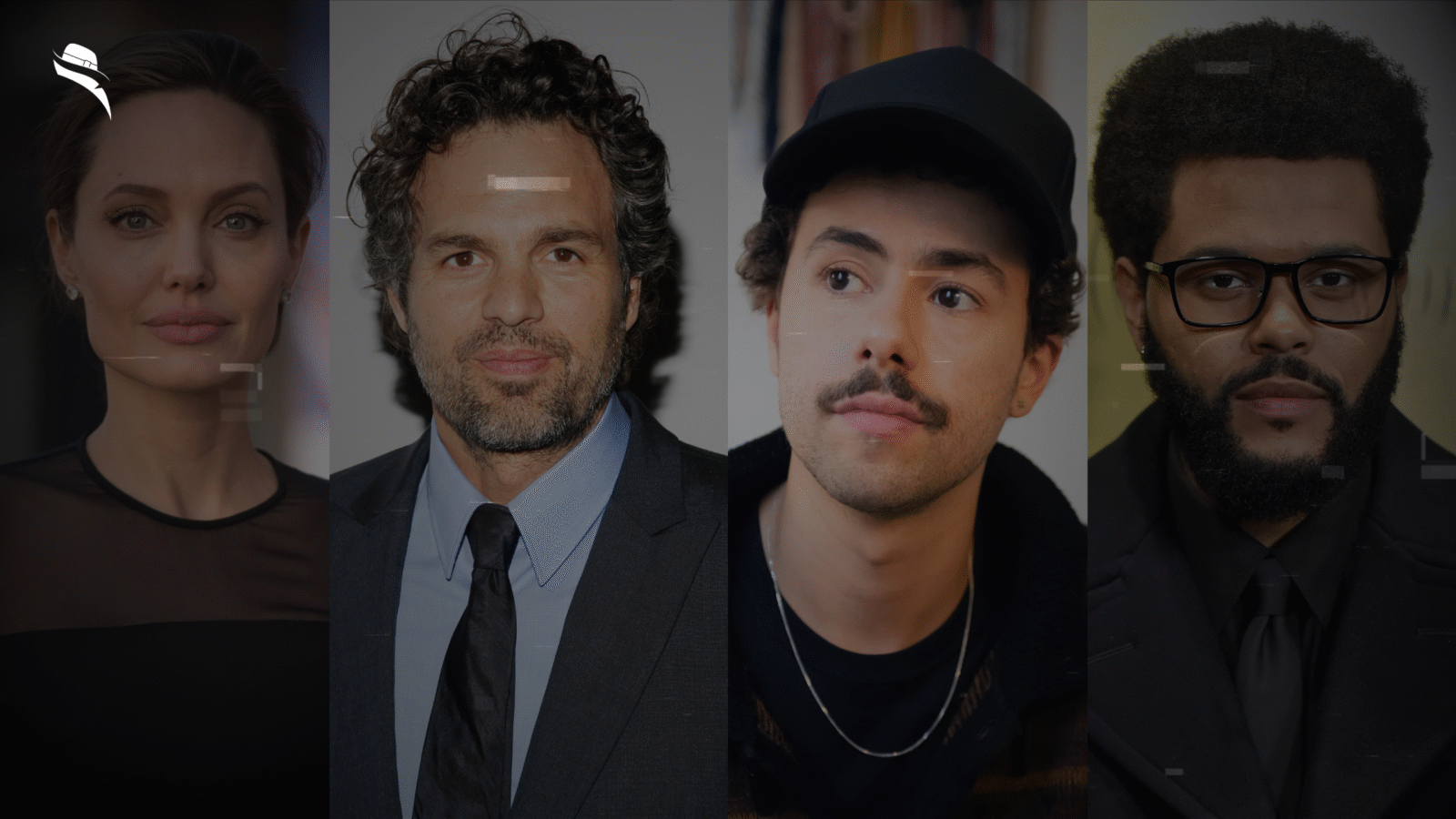
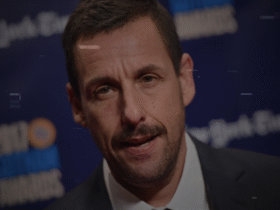
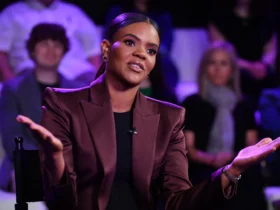
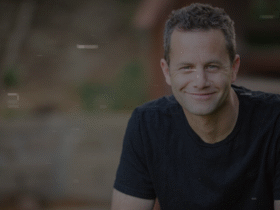
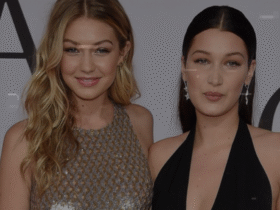
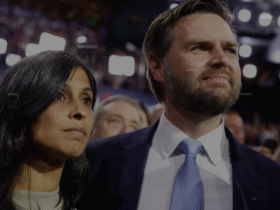
3 Comments